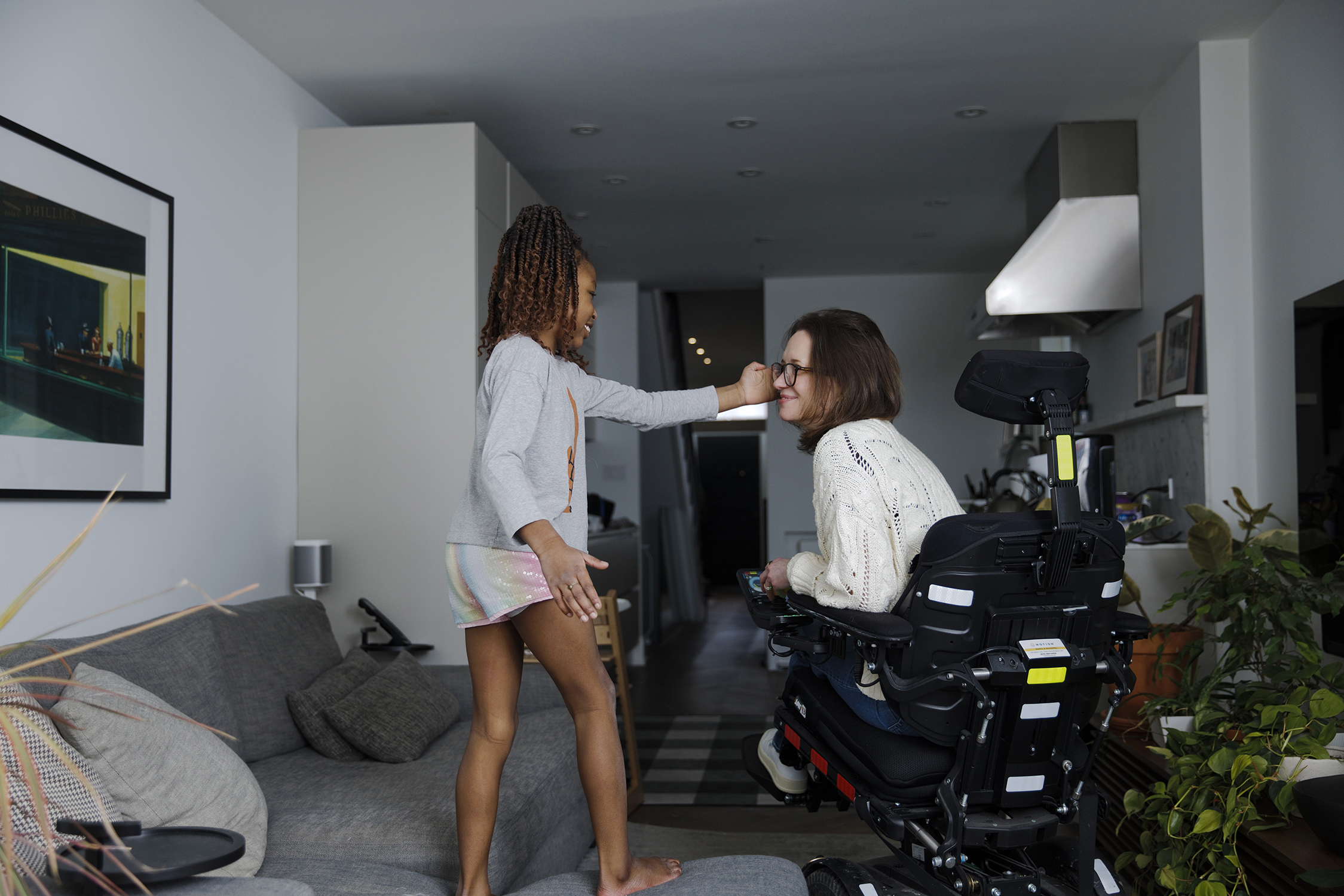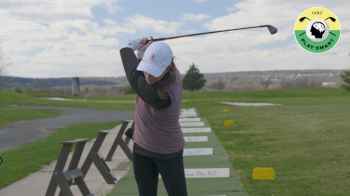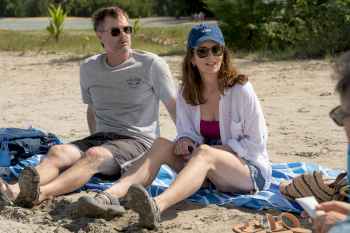Disabled and Mom Enough

For the past year, my husband David has been on parental leave with our second baby. We live in Canada, and he took the full 61 weeks available to him. When our first child was born in 2017, David returned to work the next day (we were foster parents).
Over the past year, I’ve had three books come out, so David has been the primary caregiver for both of our kids. This division of household labor has reinforced a longstanding insecurity I have as a disabled mother: that I’m not seen as a real parent. That it is almost more believable that I’d be an author than a mother.
[time-brightcove not-tgx=”true”]Don’t get me wrong—I love my work and feel extremely thankful for it. But as a disabled woman, my own needy body and dependence on care renders me invisible in the stereotypical portrait of the all-giving and endlessly capable mother. It seems likely, though, that even the mothers who fit that image are crushed by the expectations.
When our first child was a newborn, I joined a support group for new moms in Oakland, where we lived. There were about a dozen of us who met on Wednesdays, all with babies on our laps. A common refrain from the rest of the group was a shared angst about changing identities. They wanted to make sure they didn’t become “only moms.” This concern was rooted in both how the world saw them and also how they saw themselves—a worry that their other interests, accomplishments, and feelings might be subsumed by their babies.
Their feelings are valid. But while I tried to relate, I was thrilled by the idea that someone would think of me as a mom, even if it crowded out all the other parts of me. Eight years later, that desire hasn’t abated. I find myself trying to prove that I’m a mother. Instead of distancing myself from my kids in professional contexts, I shoehorn them into conversations—mentioning their sleep, illnesses, and milestones. I feel a sense of pride when I’m booking doctor’s visits or scheduling calls with teachers. Being a mom feels like a brag.
Read More: Motherhood in a Wheelchair Isn’t Easy. But My Disability Will Be My Son’s Strength
I don’t have some traditional view of motherhood as the ultimate vocation—people should feel equally empowered to parent or not. But, as a disabled woman, I never forget how the world views my capacity to parent. I can count on one hand the number of times I have witnessed a disabled parent in books, shows, and movies. We are almost entirely absent from media.
It’s not only a lack of representation that makes it hard to claim my identity as a mom; in the majority of states in America, it’s legal to forcibly sterilize a disabled person against their will. Disabled people can be subjected to surgeries we do not want, just so kids won’t have us as parents. These laws are not antiquated or ignored. The most recent law was passed in 2019.
In 42 states, disability is grounds for child removal. Child Protective Services haphazardly tracks disability as a status. Still, even with insufficient records, we know that, at minimum, child protective services are 23 to 63% more likely to determine that a disabled parent is abusive, despite no evidence that disabled parents are more likely to abuse their kids. Parents with an intellectual disability face removal rates as high as 70 to 80%, even though IQ is not correlated with parental capacity. I spoke to one attorney who represents disabled parents fighting for custody, and she believes that almost every child removal case involves some form of parental disability.
For many disabled people, “mom” is an aspirational identity—whether it’s seen in legislation or our daily lives. In every school my eldest has attended, I have been unable to access some portion of where she spent her days: the classroom, the office, or the assembly hall. My eight-year-old goes about her days in our city, pointing out the places I cannot go in my wheelchair.
The world makes it clear that disabled people should not parent and that we have limited rights, and I have metabolized those messages. Despite writing an entire book about why disabled people have parenting wisdom to offer all parents, I still feel the need to prove my bona fides as a mom.
If I run into a parent at the park and they call me “K’s mom,” it’s the highest compliment. Sure, I’m an author and a friend and a person with preferences, but the world doesn’t constantly threaten those parts of me. I have spent my life seeing disabled people in the arts and sciences. Underrepresented, sure, but present.
I recently watched Nightbitch (for some stubborn reason, I avoided reading it for years) and I think it addresses, brilliantly, the structural and cultural forces that shove many women into reluctant caregiver roles without adequate support. In it, the main character, called “Mother,” wrestles with the thankless monotony of parenting and the loss of her former identity as an artist. Her rage simmers until she becomes so feral that she starts to turn into a dog. It’s only when she starts to grow a tail that she can find her way back to herself.
Many mothers experienced a cathartic release reading or watching Nightbitch, but I couldn’t make myself feel it. Despite the bleak illustration of her days, I found myself feeling a little bit jealous. The haggard woman with deadened eyes felt, to me, aspirational. Of course, many people have struggles that are enviable by others. The social waters I swim in remind me constantly that motherhood is a club to which women like me are not invited.
Disabled parents like me elbow our way in, redefine the genre, and yet find ourselves on the outside looking in. But disabled parenting actually offers practices that can make parenting more humane for everyone: accepting our flaws, relying on community, and rejecting consumerism. Despite my heartfelt belief that disabled wisdom contains solutions for all parents, I still find myself wishing I were just another harried mom in the carpool line.
I want to be seen as a capital M “Mother,” and I want to believe I am. But at the heart of my discontent is a shared experience with all other parents—the feeling that who we are does not match the narrow prescriptions of who society will allow us to be. My exclusion is borne from a feeling experienced by many, disabled and not: invisibility. If a disabled mother like me can be fully witnessed, then the range of what a real mother can look like expands.
This is what motherhood looks like to me: When we leave the house, my eldest helps put my baby on my lap in my power wheelchair. I buckle him in using a Velcro strap a friend sewed for me. As I go down the plywood ramp outside our house, my eldest goes back to shut and lock the door. The baby’s body presses into my aching ribs, but I endure the sensation because his head on my sternum feels like peace. When we stop to buy a cookie, there is a step outside with no ramp, so I knock on the window and wave a shopkeeper out. My eldest gets pouty because she hates to see me excluded. She’s quiet for a block or so. We stop for her to play at the broken exercise equipment at a nearby corner, which, for some reason, is her “favorite playground.” I get a wave of vertigo and breathe through it. My baby mutters and drool drips down his chin from his new molar. I feed him a fruit pouch.
I will not bathe them tonight; David will. I cannot lean into the tub. I will not cook their dinners; David will. I have not once pureed something for them. If they wake up at night, they know David will be the one to help. This evening, my eldest and I will play a strategy game with bug tiles. My baby will kiss my cheek, slobbery and open-mouthed—a gift marked by a thousand tiny miracles.



